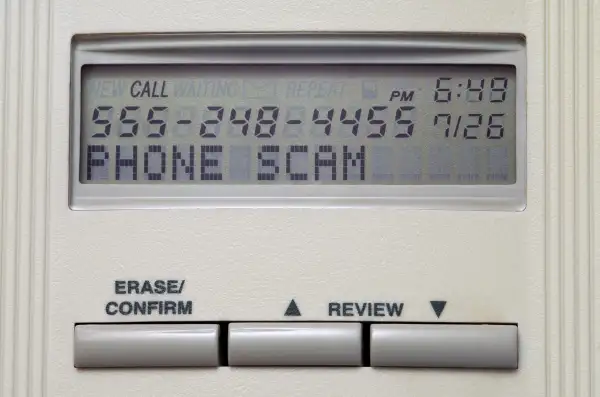Don't Fall for the 'Steve Martin' IRS Phone Call Scam

A phone scam that first appeared nationally a year ago and has ripped off victims for more than $5 million is showing no signs of slowing down. In October 2013, the IRS issued a warning concerning a "pervasive telephone scam" that had popped in nearly every state in the country—victimizing recent immigrants in particular—that played out in the following way:
Victims are told they owe money to the IRS and it must be paid promptly through a pre-loaded debit card or wire transfer. If the victim refuses to cooperate, they are then threatened with arrest, deportation or suspension of a business or driver’s license. In many cases, the caller becomes hostile and insulting.
The Treasury Inspector General for the Taxpayer Administration (TIGTA) and the FTC followed up with warnings about the scam during tax season, by which time more than 20,000 suspect calls had been reported, and victims had been bilked of more than $1 million. Based on how lucrative this con has been for fraudsters, it's no wonder that the calls keep on coming. By August, the IRS was compelled to send out another warning, alerting the public that the number of complaints about such calls had surpassed 90,000, and losses by victims had exceeded $5 million.
In recent weeks, amid continued reports in Ohio, Delaware, New Jersey, and other states, the FBI issued an alert with more details about the "intimidation tactics" used by callers. There may be threats to "confiscate the recipient’s property, freeze bank accounts, and have the recipient arrested and placed in jail. The reported alleged charges include defrauding the government, money owed for back taxes, law suits pending against the recipient, and nonpayment of taxes. The recipients are advised that it will cost thousands of dollars in fees/court costs to resolve this matter."
It has been widely mentioned on scam warning Internet forums that the voices on the end of the threatening phone calls often have thick accents—variously described as Indian, Middle Eastern, or Asian—and that they identify themselves as IRS agents with names that are sometimes generic American (Julie Smith, John Parker, Barry Foster) and other times seem pulled directly from Hollywood movies. "Steve Martin," the original "Wild and Crazy Guy," is one of the favorite fake names used by the scammers. "Jack Dawson," the name of Leonardo DiCaprio's iconic character in "Titanic," is another. At times, the callers have been known to become abusive and use foul language, telling the call recipients, "Don't be stupid" and "your ass will wind up in jail."
All of these "problems" can go away, the scammers say, if the victim makes a payment of $500 or $1,500 immediately—ideally in an entirely untraceable way, such as a prepaid money card or wire transfer.
Before rolling your eyes and thinking you'd never fall for such a scam, note that the con involves a caller ID trick that makes it look like the call is originating from a number that is indeed used by an IRS office. Yet as the FTC warned, "You can’t rely on caller ID. Scammers know how to rig it to show you the wrong information (aka “spoofing”)." What's more, callers often have some of the victim's personal information handy, such as the last four digits of a social security number. Further calls and bogus "IRS" emails may follow the original call, in order to the make the demand for payment seem more legitimate.
Rest assured, it's not. If you're at all uncertain if you're dealing with a scammer, bear in mind the following:
• The IRS almost always contacts people about unpaid taxes first by mail, not by phone.
• The IRS never asks for immediate payment over the phone, never requests payment information (for example, a debit card number) over the phone, and never specifies a certain form of payment for unpaid taxes.
• It is not standard procedure for IRS agents to call after normal office hours are over, nor to threaten people that more calls will follow if you don't comply immediately, nor to swear at taxpayers.
If you do get a call that you suspect to be a scam, do NOT give out or confirm any personal information, and most certainly do NOT wire money or make payment of any sort. Hang up the phone right away, and then report the incident at the TIGTA hotline (800-366-4484). File a complaint with the FTC as well.
